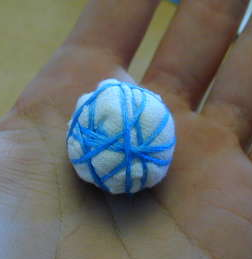Using Our Bodies to Learn and Remember
 Embodied cognition is an active field of research that explores the role of our body in thinking, learning, creativity and all manner of cognitive activity. These results are especially relevant to cognitive designers because our bodies are a natural interface to the artifacts we create.
Embodied cognition is an active field of research that explores the role of our body in thinking, learning, creativity and all manner of cognitive activity. These results are especially relevant to cognitive designers because our bodies are a natural interface to the artifacts we create.
Take for example, recent research at Notre Dame that suggests we can think better under certain circumstances if we are able to hold an object near our hands. Subjects were asked to analyze a set of complex geometric shapes. One group held their hands by the images another group put their hands in their lap. Those with their hands by the images performed better. The researcher offer this insight:
“Near the body, and especially near the hands, attention to detail is crucial because subtle differences among objects can differentiate the harmful from the benign….”
Studying visual representations plays an important role in math, science, the arts and many other human endeavors. When high visual acuity is critical it might be smart to use our hands – literally.